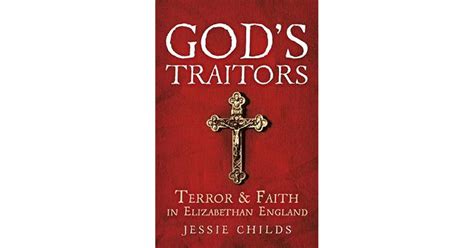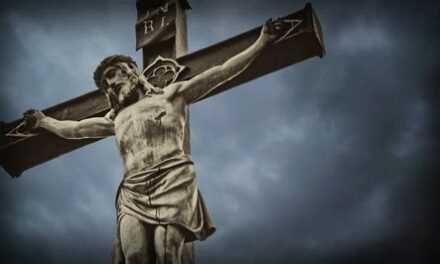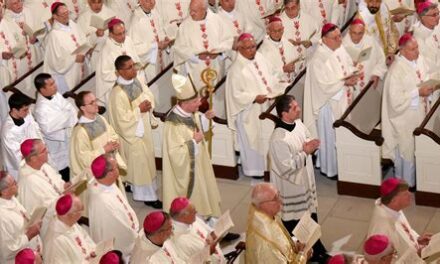God’s Traitors: Terror and Faith in Elizabethan England
By Jessie Childs
Oxford University Press; September 1, 2014; 472 pp.
Reviewed by Stephanie A. Mann
This book marks an important milestone in the study of the English Reformation. Well received by critics in England, God’s Traitors was nominated for best book of 2014 in the Longmans-History Today awards and made other best-of-the-year lists (in the BBC History Magazine for example).
By telling the story of the Vaux family, Childs has brought the predicament of Catholics during the reign of Elizabeth I to the fore. The positive reception of God’s Traitors has benefitted from the fact that the author is not a Catholic, thus removing any suspicion of special pleading in a nation still touchy on the subject of Catholicism. She demonstrates the hopelessness and frustration Catholics felt as avenues for participation in their native country were cut off because of their religion.
Childs traces the progress of the Vaux family from the reign of Henry VIII through the Gunpowder Plot of 1605 and its catastrophic aftermath for Catholics during the reign of James I. The Vaux family lived in the Midlands of England in Great Harrowden Hall. The family had received the Baronetcy during the reign of Henry VII for their loyalty to the Lancastrian cause.
Loyalty to a cause is a family trait. When Elizabeth I’s Parliament established the Church of England and passed recusancy laws that fined those who did not attend establishment services and then passed penal laws that punished Catholics for attending Mass, the Vaux family was faithful to their Catholic faith.
More dangerously, they sheltered Catholic priests and almost traitorously close to those involved in the Ridolfi Plot, the Babington Conspiracy, the Throckmorton Plot, and, finally, the Gunpowder Plot.
The family fortunes waxed and waned as Tudor succeeded Tudor, but the Barons always protested their loyalty to their sovereign, even when brought before the Privy Council and the Star Chamber as William Vaux, the third Baron Vaux of Harrowden was in 1581, along with his brother-in-law, Sir Thomas Tresham.
Childs pays particular attention to the Vaux women, the second Baron’s daughters, Anne and Eleanor, and his daughter-in-law Eliza. They handled the security for the visiting missionary priests as they moved from one Catholic safe house to another. They passed on the Catholic faith, educating their offspring.
In following their years of protecting Catholic lay leaders and clergy, Childs introduces us to the Jesuits Edmund Campion, Robert Persons, Robert Southwell, John Gerard, and Henry Garnett and the risks they took to offer Mass and the other Sacraments.
Campion, Southwell, and Garnett would be executed because they were priests. Campion and Southwell were canonized among the 40 Martyrs of England and Wales in 1970. Garnett’s cause for canonization is complicated by his involvement in the Gunpowder Plot. Nevertheless, Henry Vaux, Campion’s pupil and Southwell’s protector, gave up his inheritance to live as a contemplative.
Although the family endured crisis after crisis during Elizabeth I’s reign, the Gunpowder Plot brought greater suspicion upon them because of their ties to the Treshams. Francis Tresham, son of the Thomas Tresham mentioned above, joined his cousins Robert Catesby and Thomas Wintour in the plan to blow up Parliament, murder King James I and the royal family, and take over England as a Catholic country.
What the Vauxes and Garnett knew about the conspiracy was of great interest to the authorities. The seal of the confessional could not protect the priest, and he was executed on May 3, 1606. When the fourth Baron Vaux, Edward, refused to swear allegiance to James I because it meant denying the authority of the Pope, the family nearly lost everything and he was imprisoned.
Without speculating on what the Vaux family members felt about their predicament, Childs powerfully depicts the hopeless frustration of the younger generation by describing the wild career of Ambrose Vaux as a mercenary on the Continent.
Although the Gunpowder Plot is the great climax of the story, she recounts the family fortunes during the long Eighteenth Century and highlights the ninth Baron Vaux taking his seat in the House of Lords in 1962. He was a Benedictine monk—the first in the House for 403 years. Childs brings a great depth of detail, analysis, and even sympathy to her story of the Vaux family of Harrowden Hall.














